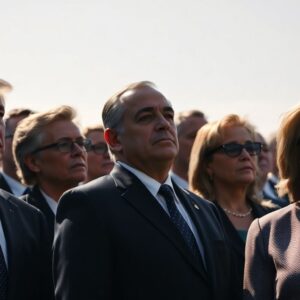The United Nations has welcomed Colombia’s first convictions under its transitional justice tribunal, describing the sentences handed down to former rebel commanders as “a crucial milestone on the path to accountability,” according to UN human rights chief Volker Türk. He emphasized that these convictions represent a fundamental step in combating impunity and fulfilling victims’ rights to truth and justice after decades of violence.
The Special Jurisdiction for Peace (SJP), established under the 2016 Peace Agreement between the Colombian Government and FARC rebels, issued the sentences on Tuesday. Seven former FARC leaders were convicted of war crimes and crimes against humanity linked to more than 20,000 cases of kidnappings, torture, sexual violence, and enforced disappearances. The tribunal offers a “recognition route,” allowing defendants to acknowledge their crimes and participate in restorative activities, rather than deny them. All seven chose this route, committing to activities such as humanitarian demining, assisting in the search for missing persons, and contributing to memorialization projects, with movement restrictions instead of custodial sentences.
UN officials stressed that it is now the Government’s responsibility to ensure that legal, budgetary, security, and administrative conditions are in place for the effective enforcement of these sentences. UN Secretary-General António Guterres welcomed the rulings as a key step forward and highlighted the need for full implementation, with support from the UN Verification Mission to help Colombia pursue lasting peace, justice, and reconciliation.
The SJP rulings mark the first stage of a broader accountability process, with the court expected to issue its initial sentences for former members of the security forces later in the week. These future rulings will address serious human rights violations, including murders and enforced disappearances carried out by state agents and misrepresented as combat casualties.
While the convictions are celebrated as a landmark step, UN officials caution that challenges remain. Armed conflicts continue to affect parts of Colombia, and human rights violations—including attacks on defenders, child recruitment by armed groups, and disproportionate impacts on minorities—persist. Implementing the peace accords is recognized as a complex, long-term process requiring sustained effort, with the 2016 Peace Accord remaining central to preventing further violations and suffering.
The Office of the UN High Commissioner for Human Rights (OHCHR) supported the creation of the SJP and continues to provide technical assistance for its investigations, ensuring that victims’ rights and participation remain at the heart of the justice process.






